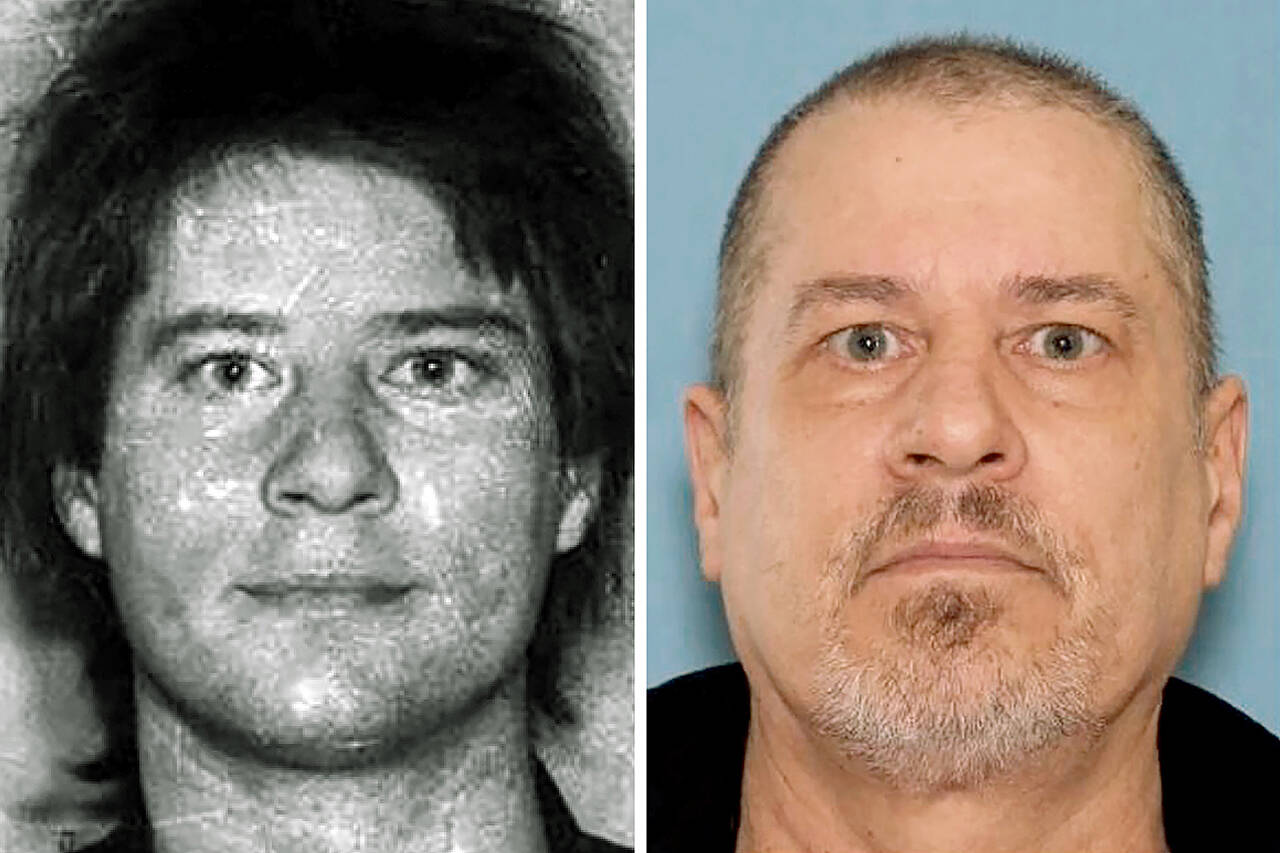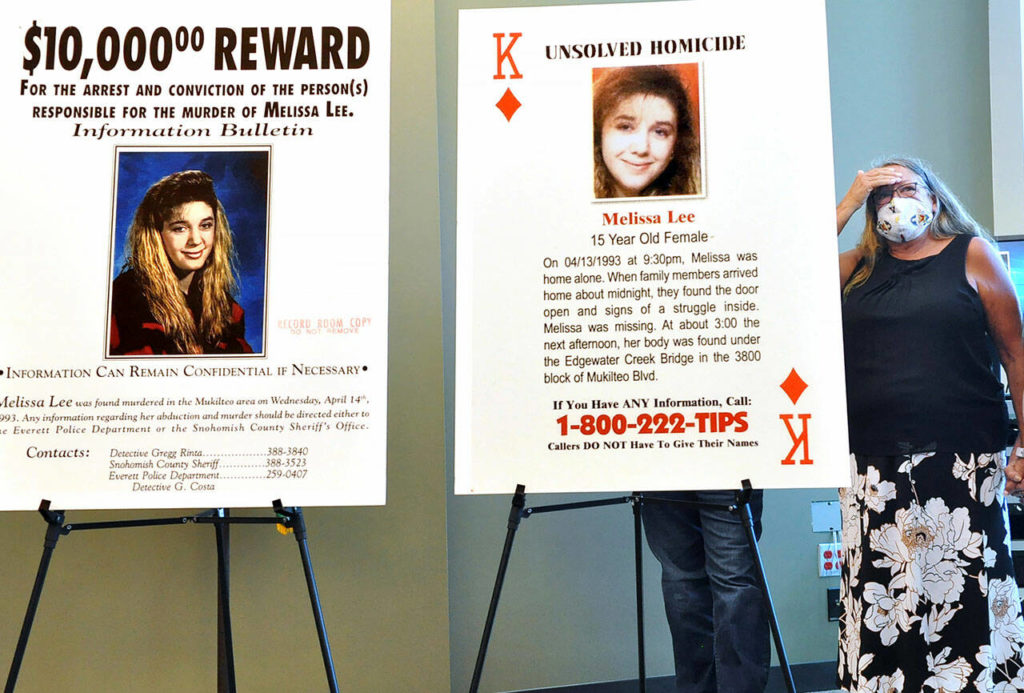EVERETT — After years of delays for mental health concerns, the man accused of killing a Bothell teen in 1993 is fit to stand trial, a judge ruled Tuesday.
An evaluation found Alan Edward Dean competent, and both Snohomish prosecutors and the defendant’s public defenders agreed the case could go forward.
Snohomish County Superior Court Judge Miguel Duran arraigned Dean, 65, on first-degree murder charges Tuesday. The defendant pleaded not guilty to the killing of Melissa Lee.
Trial was tentatively set for April 7, but it is expected to be postponed.
It’s been a long road to get to this point.
With the help of forensic genealogy, police arrested Dean in July 2020 in connection with Lee’s death, over 27 years after her slaying. DNA on a used cigarette butt linked Dean to the long-unsolved killing of Lee, who was 15 when she died. At the time, Dean was 35.
Lee and Dean had met on an anonymous phone line, according to the charges refiled in Snohomish County Superior Court. Her mother came home to a house in disarray that night in April 1993. Soon after, passersby found Lee’s body 50 feet below the Edgewater Creek bridge on Mukilteo Boulevard.
But almost immediately, it was clear it would still take years for the case to be resolved.
In his first appearance in court, Dean made barely coherent rambling statements to a judge, using legal jargon often used by sovereign citizens, an extremist anti-government movement in which U.S. residents refuse to recognize the authority of courts, police and taxing entities.
Finding Dean didn’t have the capacity to understand the nature of the proceedings against him or to help in his defense, Snohomish County judges twice ordered competency restoration treatment at a state psychiatric hospital. In that time, Dean wrote a series of letters to Superior Court judges in which he claimed he wasn’t a U.S. citizen.
Doctors argued the defendant was unlikely to regain competency soon. So in April 2021, Judge Richard Okrent dismissed the murder case and indefinitely committed Dean to the state hospital. Prosecutors could refile the charges if a judge found him competent to stand trial in the future.
In March of last year, there appeared to be reason for optimism the criminal case could go forward.
Dean was discharged from the hospital, leading prosecutors to refile the charges. But since they didn’t present enough evidence Dean could be restored to competency, Judge Anna Alexander again dismissed the case.
Since then, psychiatrists have indicated Dean’s condition may have improved. According to court filings, the defendant’s psychologist wrote that “despite differing reports made by psychologists and evaluators of Mr. Dean over the last year and a half, there is currently insufficient evidence to diagnose Mr. Dean with a formal thought disorder … or any other psychotic disorder.”
The psychologist also noted Dean had declined medication, but his mental health didn’t decline, according to court documents.
In another report, a psychologist wrote Dean “does not show any symptoms of psychosis or mental health disorder that interferes with his ability to make decisions or provide basic needs of health and welfare,” according to the charges.
In late July, the state attorney general’s office wrote to prosecutors: Dean was going to be discharged from the hospital.
So for the third time, prosecutors filed first-degree murder charges against Dean in August. Another evaluation this month found Dean competent to stand trial.
It took six months to get Tuesday’s decision on whether the case could move forward.
“Mr. Dean demonstrates the capacity to understand the nature of the legal proceedings against him,” Judge Duran said, citing the recent evaluation, “and has the capacity to assist in his own defense.”
Jake Goldstein-Street: 425-339-3439; jake.goldstein-street@heraldnet.com; Twitter: @GoldsteinStreet.
Talk to us
> Give us your news tips.
> Send us a letter to the editor.
> More Herald contact information.


























